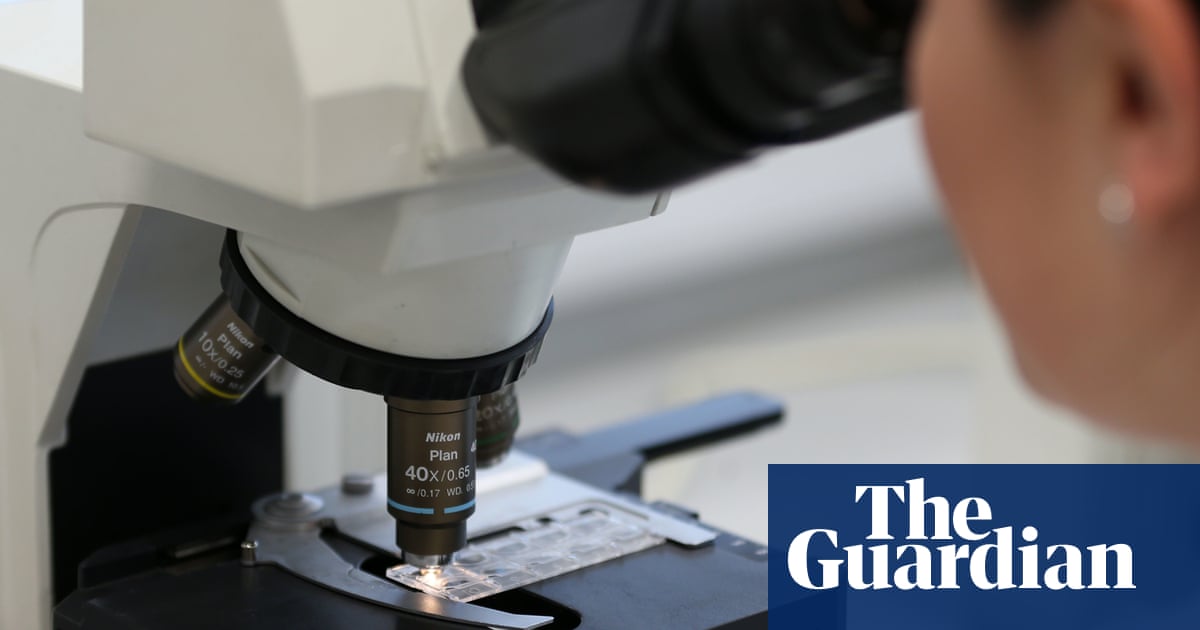Doctors have developed an artificial intelligence tool that can predict which men with prostate cancer will benefit from a drug that halves the risk of dying.
Abiraterone has been described as a “gamechanger” treatment for the disease, which is the most common form of cancer in men in more than 100 countries. It has already helped hundreds of thousands with advanced prostate cancer to live longer.
But some countries, including England, havestopped shortof offering the “spectacular” drug more widely to men whose disease has not spread.
Now a team from the US, UK and Switzerland have built an AI test that shows which men would most likely benefit from abiraterone. The “exciting” breakthrough will enable healthcare systems to roll out the drug to more men, and spare others unnecessary treatment.
The AI test is being unveiled in Chicago at the annual meeting of the American Society of Clinical Oncology, the world’s largest cancer conference.
Nick James, professor of prostate and bladder cancer research at the Institute ofCancerResearch in London and a consultant clinical oncologist at the Royal Marsden NHS foundation trust, co-led the team that built it.
“Abiraterone has already hugely improved the outlook for hundreds of thousands of men with advanced prostate cancer,” said James. “We know that for many men with cancer that has not yet spread, it can also have spectacular results.
“But it does come with side-effects and requires additional monitoring for potential issues with high blood pressure or liver abnormalities. It can also slightly increase the risk of diabetes and heart attacks, so knowing who is most likely to benefit is very valuable.
“This research shows that we can pick out the people who will respond best to abiraterone, and those who will do well from standard treatment alone – hormone therapy and radiotherapy.”
The test uses AI to study images of tumours and pick out features invisible to the human eye. The team, funded by Prostate Cancer UK, the Medical Research Council and Artera, trialled the test on biopsy images from more than 1,000 men with high-risk prostate cancer that had not spread.
The AI test identified the 25% of men in the group most likely to benefit from the abiraterone – for these men, the drug halves the risk of death.
In the trial, patients received a score – biomarker-positive or -negative – which was compared with their outcomes. For those with biomarker-positive tumours, one in four of the men, abiraterone cut their risk of death after five years from 17% to 9%.
For those with biomarker-negative tumours, abiraterone cut the risk of death from 7% to 4% – a difference that was not statistically or clinically significant, the team said. These men would benefit from standard therapy alone and be spared unnecessary treatment.
Sign up toFirst Edition
Our morning email breaks down the key stories of the day, telling you what’s happening and why it matters
after newsletter promotion
The study co-leader Prof Gert Attard, of the UCL Cancer Institute, said: “This study shows, in a very large cohort of patients, that novel algorithms can be used to extract information from routinely available pathology slides to tailor these treatments to specific patients and minimise over treatment whilst maximising the chance of cure.”
James said that because fewer men than previously thought would need the drug, healthcare systems should consider giving it to men whose cancer had not spread.
It is approved for NHS use in England for advanced prostate cancer, but not for newly diagnosed high-risk disease that has not spread. However, it has been available for men with this indication in Scotland and Wales for two years.
“Abiraterone costs just £77 per pack, compared with the thousands of pounds that new drugs cost,” said James. “I truly hope that this new research – showing precisely who needs the drug to live well for longer – will lead to NHS England reviewing their decision not to fund abiraterone for high-risk prostate cancer that has not spread.”
Dr Matthew Hobbs, director of research at Prostate Cancer UK, described the AI test as “exciting”. He added: “We therefore echo the researchers’ urgent call for abiraterone to be made available to those men whose lives it can save – men who, thanks to this research, we can now identify more precisely than ever before.”
